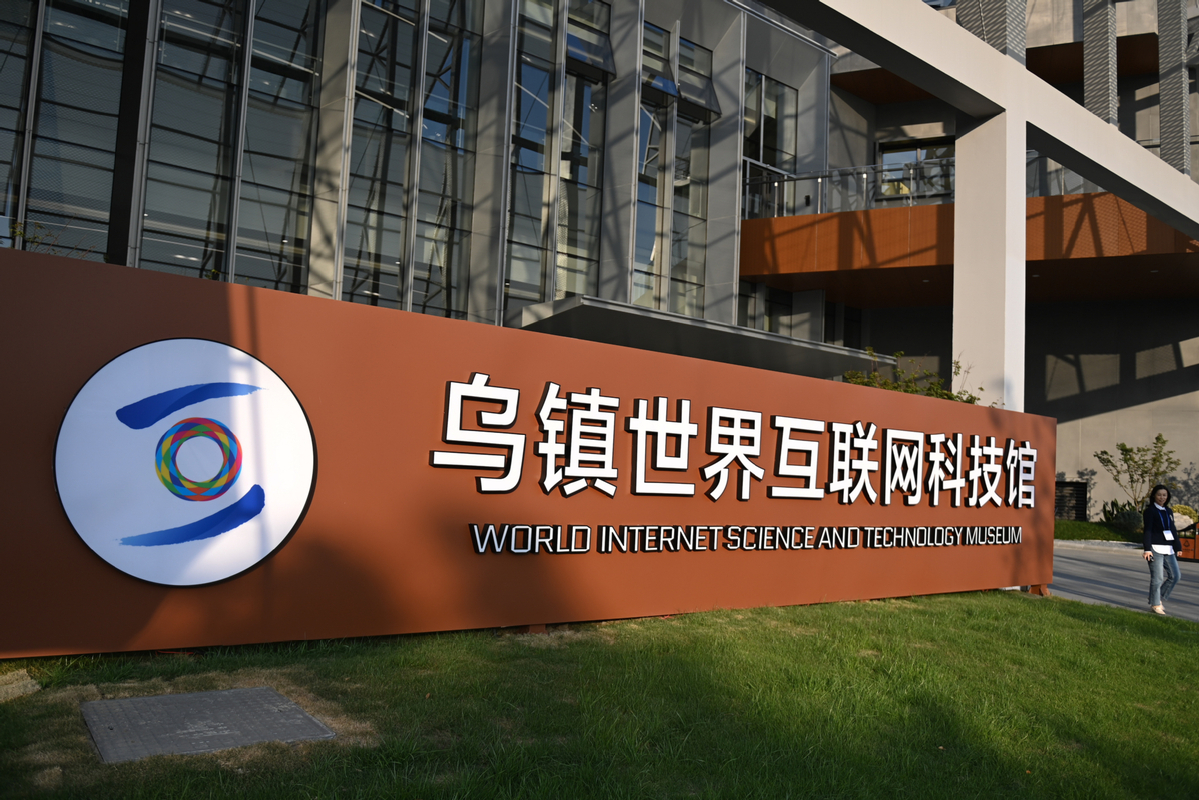Cyberspace pledges set to narrow divide
By XU WEI | CHINA DAILY | Updated: 2023-11-10 07:17

Experts: President offers vision for more inclusive development of internet sector
China's renewed commitment to take forward the building of a community with a shared future in cyberspace will propel greater global cooperation and exchanges in the internet sector and help narrow the global digital divide, analysts and industry insiders said.
President Xi Jinping highlighted the need to continue with efforts to build a community with a shared future in cyberspace during a speech via video link to the opening ceremony of the 2023 World Internet Conference Wuzhen Summit on Wednesday.
He made an appeal for the international community to deepen international exchanges and cooperation in the digital domain, expand the availability of information technology services, narrow the digital divide, and better ensure public well-being through the development of the internet.
Xi's speech came eight years after he delivered a landmark address at the Wuzhen conference in 2015, in which he presented Beijing's major principles and proposals for global internet governance.
Ouyang Rihui, a professor of digital economics at the Chinese Internet Economy Research Institute at the Central University of Finance and Economics, said that Xi's latest remarks showcased a strong sense of responsibility for global cyberspace development and presented a vision for the more inclusive development of the internet sector.
He said that reducing the digital divide involves narrowing gaps between nations, regions, sectors and population groups. "It also involves narrowing the divide in the access, usage and knowledge of digital technology."
Bridging the digital divide would require more proactive efforts from the government and platform companies as well as joint efforts from different countries, he added.
According to a report published by the Chinese Academy of Cyberspace Studies, China has been actively engaged in building global internet infrastructure to expand the coverage of the internet, including helping nations build optical fiber and base station networks and improving global digital connectivity network.
For instance, Chinese businesses helped South Africa to develop the first 5G network in Africa.
Andy Mok, a senior research fellow at the Center for China and Globalization, a Beijing-based think tank, said that China's commitment to a shared future in cyberspace, aligning with the principles of mutual respect and sovereignty, "reflects integrity, as it exhibits consistency between its professed online intentions and its offline geopolitical behavior".
He said that China's pledge to foster a cooperative future in cyberspace holds "significant weight due to the country's dual role as a major market player in artificial intelligence and a leading innovator in AI technology".
"The sheer scale of its market ensures that its AI usage sets trends, while its rapid advancements in AI development position it as a key architect in shaping global AI implementation standards," he said.
Beijing put forward the Global AI Governance Initiative last month, calling for countries to enhance information exchanges and technological cooperation on the governance of AI.
"We should increase the representation and voice of developing countries in global AI governance, and ensure equal rights, equal opportunities and equal rules for all countries in AI development and governance," said an official paper explaining the initiative.
Antonio Frisoli, a professor of robotics at Sant'Anna School of Advanced Studies in Pisa, Italy, and vice-CEO of Next Generation Robotics, said he found the speech by Xi "very inspiring", as it presented a global vision promoting the peaceful development of cyberspace.
He said that the vision from Xi has not focused on the development of a country but on shared international development. "I got from his speech that there is clear importance at this stage for a common vision."
President Xi also made an appeal on Wednesday for countries to respect the development paths and governance models chosen by each country, abide by international rules governing cyberspace, reject cyber hegemony and oppose cyber confrontation and an arms race in cyberspace.
Ouyang, the professor, said China's vision for global cyberspace stood in sharp contrast to the vision put forward by some nations that advocated various alliances and forming exclusive circles.
"With the global order now being reshaped by digital technology, China has made it clear that it will pursue greater dialogue and exchanges, seek common ground while reserving differences and build a cyberspace beneficial to all," he said.
- 2023 World Internet Conference Wuzhen Summit kicks off
- Outstanding cases of jointly building a community with a shared future in cyberspace released at 2023 WIC Wuzhen Summit
- Xi: Take cyberspace to new level
- World Internet Conference holds Member Representative Symposium
- Inclusive tech world stressed
























